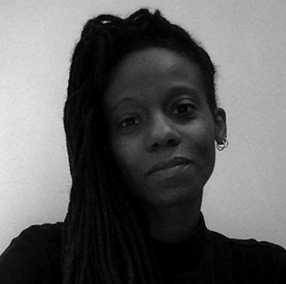number four
everything we have made
halved in its own colloquial
guardianship
the drained lake
the felled castle
the timbre of a lone voice
not ever disturbed
the fist of new snow on its
way to melting
well-coagulating blood type
O
all fallen sutures felled for
unbearable reasons
unsystematic in its approach
steadfast in its sediment
to reach the kingdom before
the only gate clenched— iron
on iron and final
febrile in its will to be ocean
in its will to only want ocean
to say black but mean ocean
the embryo rests in a cavity, cleaned
and called now womb
to go there is easy
you have been my want
all desire fostered among us
the supplier passes the iodine
through me
clears the canal for anything
every recoil is my own absent
want— mine and not to be mine
I am a thimble of O blood cells
bluffing each time
to let other objects through me
it is possible for the tender wish to become a bone
to beckon to tend the animal and temper it
if it were my own arid island I
would know the word for it
would call it an island that
would have me
though the room gives way to gray
space like the wish for
any promise
prim and ill-used
storage locker of
unpaid bills and
auctioned objects
if I were my own island
I would succumb to its
measure
it lurches— how granular
its weighted scale
becomes finality
any blastocyst can live
in deference then die
extend any glib shadow
stretch the distance then
go be all the animated future
then
any body can read
the threadbare clock
its second hand proclamation
succumbs to all twelve hours
any want rings the circle
bears down with its one mouth
makes for want inside better want
made subterfuge airtight container
it cannot lean less
it hangs in the plaza
crescendo. blue. O.
Copyright © 2024 by Asiya Wadud. Originally published in Poem-a-Day on September 17, 2024, by the Academy of American Poets.
“This poem is one in a series of poems in which a fleeting fever dream of a family finally becomes real. This poem was written over the course of some days or weeks, and it was a chance to relive the fever dream again and again.”
—Asiya Wadud

